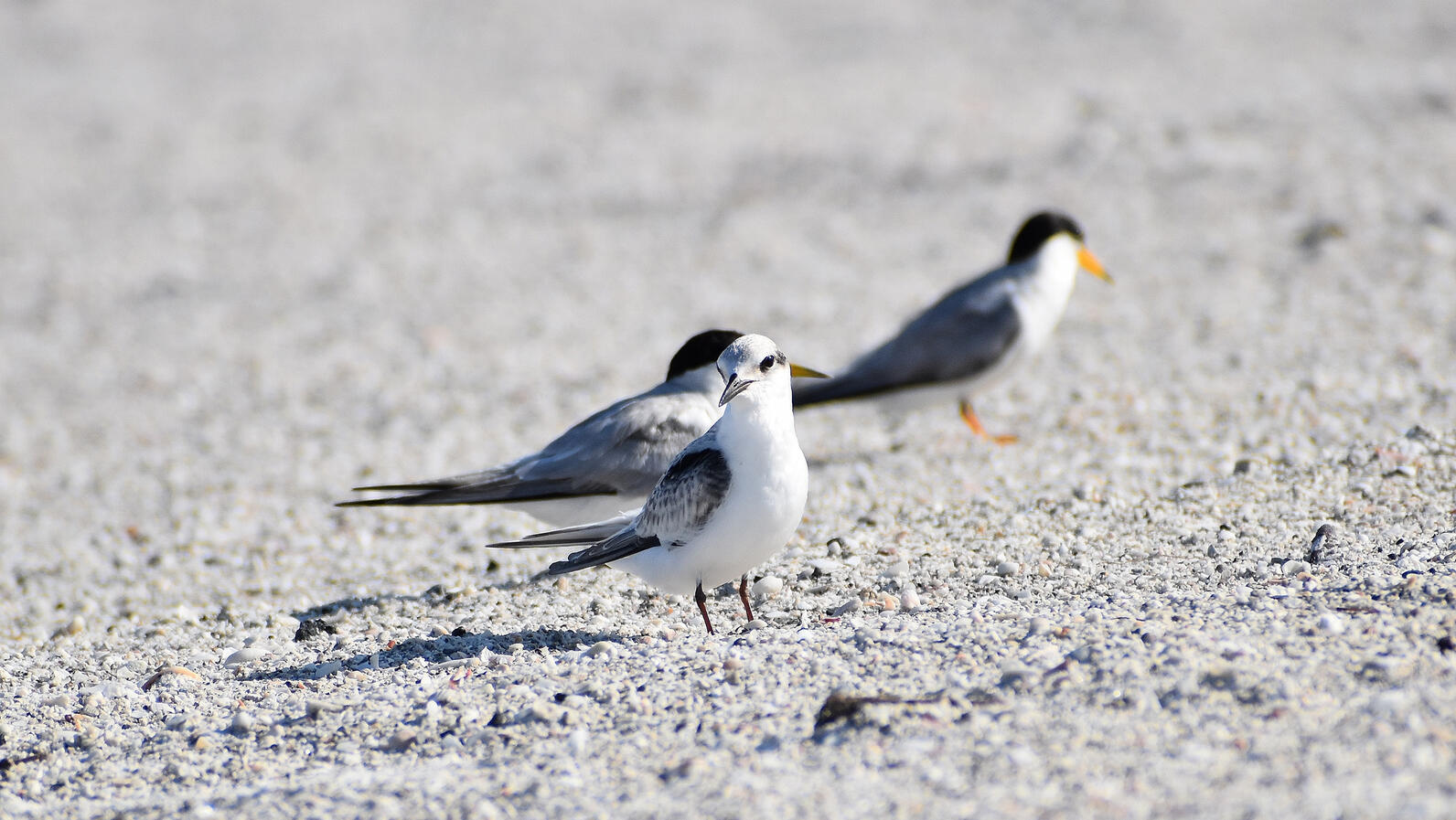On many beaches across Florida, sea and shorebirds are still busily raising their families. While some birds are laying last eggs or hatching fuzzy chicks, most of the young from this season are fledges - a unique stage in avian life when birds are moving around on their own, but depend on their parents to help find food and for protection.
Catherine Griffin may have said it best when writing about fledglings for Audubon: "Fledglings have entered what’s best characterized as awkward teenagerdom. They’re no longer as cute as they once were, still mooch off of their parents, and haven’t quite learned how to fly. They can, however, flutter quite well and usually get themselves out of harm’s way."
Though fledglings can escape danger better than their fuzzy-chick counterparts, they are still vulnerable to human disturbance and nearby predators.
"Although they can fly weakly, they still rely on Mom and Dad to help find food and are still learning," explains Holley Short, Shorebird Project Manager for Tampa-area beaches. Scaring them too far away can leave them hungry or outside the general protection-in-numbers of their colony or parents.
Kylie Wilson, Audubon's Sarasota Seasonal Bird Stewardship Coordinator, adds that at this stage, they are still a bit clumsy and prone to entanglement from fishing line and beach debris.

To keep fledges safe:
- Give nesting birds at least 100 feet of distance: more, if possible. Signs or people will alert you to these areas, but some birds haven’t settled down or may just look like they are resting in the sand. Avoid walking through flocks of birds on the upper beach.
- If pets are permitted on beaches, keep them leashed and well away from birds.
- Remove trash and food scraps, which attract predators that will also eat birds’ eggs and/or chicks.
- Do not drive on beach dunes or other nesting areas.






